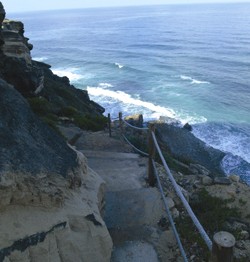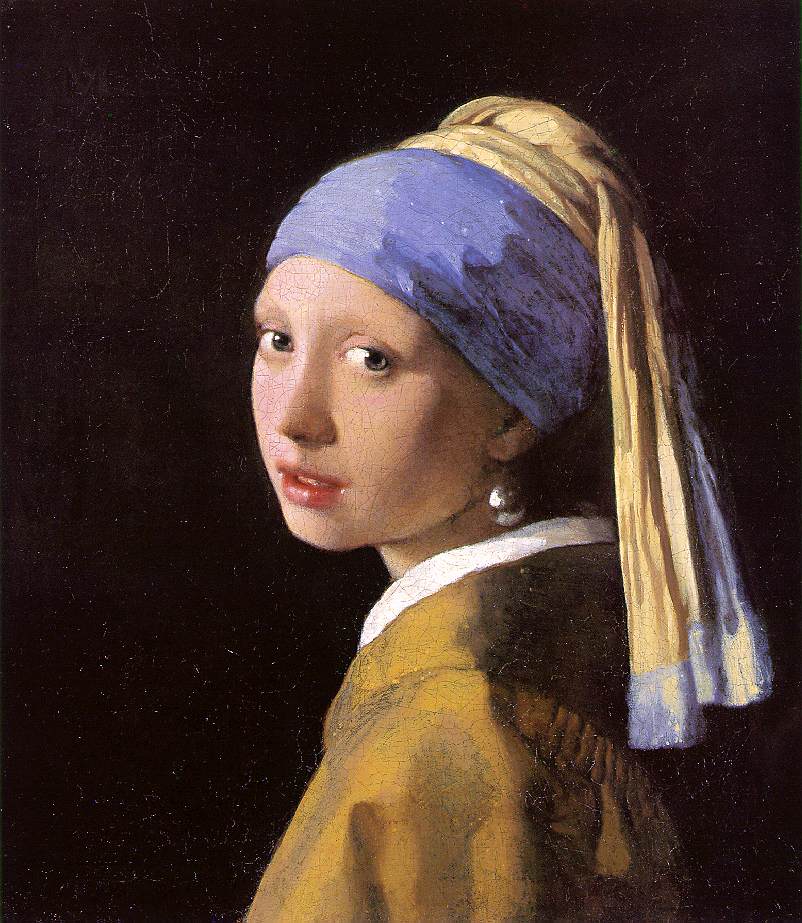
Ao som de Chieftains, num intermezzo de Cappercaillie, revisito essas minhas incursões por um século que sempre achei mais mitigado (ainda que tributário de novas conquistas ao preconceito) relativamente a todo o esplendor de um barroco que se perdia em devenientes talhas douradas e construções poéticas de entrelaçados segredos cúmplices, por aí traduzíveis numa magistral peça polifónica em que se acabava sempre por compreender melhor a música do que a lírica - sentir o Belo apenas, para alguns fútil, sem pensar. Para mim, Belo e sedutor, sem dúvida!!! Houve quem dissesse: "O Barroco não mostra a vida - distrai dela".
O meu dilema: o séc.XVII ou o séc.XIX - o estético sentir, de perfumadas nuances e antecâmaras de Prazer anunciado, num gosto por uma doce e kunderiana lentidão vivida no Banho de Apolo em Versalhes, ao som de Jean Baptiste Lully, ou, ao invés, esse febril fulgor de um locus horrendus, ao modo de Bocage ou mesmo de Herculano, em que o Amor era para ser vivido numa melancolia e numa fúria orgásmica em que a rapidez sempre faria decair a memória de um momento tão curto como é aquele em que o Prazer nos toma por completo.
Enfim... Nunca duvidei de uma dada frase, adágio ou provérbio renascentista, a recuperar Homero, que todos nós conhecemos, nem que seja por outras palavras: "Em todas as cousas há uma certa medida". Ou seja,
Tanto uma época como a outra tem a sua medida certa, o seu je ne sais quois de apaixonante e sedutor.
E, deste modo, lembrei-me de glosar em torno do mote que Ossian, esse suposto poeta gaélico, me proporcionou.
Ossian, ao que tudo indica, guerreiro bardo gaélico, imaginado por James McPherson, canta baladas de um tempo em que os actos de bravura em batalha definiam a essência do homem, a demanda pela glória e reconhecimento e o doce repouso merecido no colo daquela que o teria escolhido como seu.
Embora muitos dos tais poemas épicos se têm como forjados por McPherson, o certo é que algumas sagas narradas nas suas obras são excertos de baladas genuínas que remontam ao séc.III.
O princípio do Romantismo torna-se assim numa busca fascinante por lugares escondidos em bosques perdidos nas Terras Altas ou mesmo na Velha Irlanda.
Ao tentar decifrar alguns versos de The Songs of Selma, deparo-me com aquela melancolia que seduz o nosso lado lunar mas que logo nos faz querer regressar para um locus amoenus de diáfanas cores, límpidos canais venezianos e doces sons de cravo.
Mas, é como já se disse, em todas as coisas há uma medida certa.
E para lá da questão de sabermos se estes poemas são forjados, o certo é que têm o seu encanto, a temperar, certamente com algo mais luminoso.
E depois, no final de contas, cantar o Amor, o Viver e o Sentir é o que realmente interessa - uma Busca de todas as épocas!
Uma conversa na esplanada, à beira da Catedral!
Tá grá agam ort!
James Macpherson (1736-1796)
The Songs of Selma
(excerpt)
ARGUMENT
Address to the evening star. An apostrophe to Fingal and his times. Minona
sings before the king the song of the unfortunate Colma; and the bards exhibit
other specimens of their poetical talents; according to an annual custom
established by the monarchs of the ancient Caledonians.
1Star of descending night! fair is thy light in the west! thou liftest thy
2unshorn head from thy cloud: thy steps are stately on thy hill. What
3dost thou behold in the plain? The stormy winds are laid. The murmur
4of the torrent comes from afar. Roaring waves climb the distant rock.
5The flies of evening are on their feeble wings; the hum of their course is
6on the field. What dost thou behold, fair light? But thou dost smile
7and depart. The waves come with joy around thee: they bathe thy
8lovely hair. Farewell, thou silent beam! Let the light of Ossian's soul
9arise!
10 And it does arise in its strength! I behold my departed friends.
11Their gathering is on Lora, as in the days of other years. Fingal comes
12like a watry column of mist; his heroes are around: And see the bards
13of song, grey-haired Ullin! stately Ryno! Alpin, with the tuneful voice!
14the soft complaint of Minona! How are ye changed, my friends, since
15the days of Selma's feast? when we contended, like gales of spring, as they
16fly along the hill, and bend by turns the feebly-whistling grass.
17 Minona came forth in her beauty; with down-cast look and tearful
18eye. Her hair flew slowly on the blast, that rushed unfrequent from the
19hill. The souls of the heroes were sad when she raised the tuneful voice.
20Often had they seen the grave of Salgar, the dark dwelling of white-
21bosomed Colma. Colma left alone on the hill, with all her voice of song!
22Salgar promised to come: but the night descended around. Hear the
23voice of Colma, when she sat alone on the hill!
COLMA
24 It is night; I am alone, forlorn on the hills of storms. The wind is
25heard in the mountain. The torrent pours down the rock. No hut re-
26ceives me from the rain; forlorn on the hill of winds!
27 Rise, moon! from behind thy clouds. Stars of the night arise! Lead
28me, some light, to the place, where my love rests from the chace alone! his
29bow near him, unstrung: his dogs panting around him. But here I must
30sit alone, by the rock of the mossy stream. The stream and the wind roar
31aloud. I hear not the voice of my love! Why delays my Salgar, why the
32chief of the hill, his promise? Here is the rock, and here the tree! here
33is the roaring stream! Thou didst promise with night to be here. Ah!
34whither is my Salgar gone? With thee I would fly, from my father; with
35thee, from my brother of pride. Our race have long been foes; we are not
36foes, O Salgar!
37 Cease a little while, O wind! stream, be thou silent a while! let my
38voice be heard around. Let my wanderer hear me! Salgar! it is Colma
39who calls. Here is the tree, and the rock. Salgar, my love! I am here.
40Why delayest thou thy coming? Lo! the calm moon comes forth. The
41flood is bright in the vale. The rocks are grey on the steep. I see him
42not on the brow. His dogs come not before him, with tidings of his near
43approach. Here I must sit alone!
44 Who lie on the heath beside me? Are they my love and my brother?
45Speak to me, O my friends! To Colma they give no reply. Speak to me:
46I am alone! My soul is tormented with fears! Ah! they are dead!
47Their swords are red from the fight. O my brother! my brother! why
48hast thou slain my Salgar? why, O Salgar! hast thou slain my brother?
49Dear were ye both to me! what shall I say in your praise? Thou wert
50fair on the hill among thousands! he was terrible in fight. Speak to me;
51hear my voice; hear me, sons of my love! They are silent; silent for ever!
52Cold, cold are their breasts of clay! Oh! from the rock on the hill; from
53the top of the windy steep, speak, ye ghosts of the dead! speak, I will not
54be afraid! Whither are ye gone to rest? In what cave of the hill shall I
55find the departed? No feeble voice is on the gale: no answer half-drowned
56in the storm!
57 I sit in my grief! I wait for morning in my tears! Rear the tomb, ye
58friends of the dead. Close it not till Colma come. My life flies away
59like a dream: why should I stay behind? Here shall I rest with my
60friends, by the stream of the sounding rock. When night comes on the
61hill; when the loud winds arise; my ghost shall stand in the blast, and
62mourn the death of my friends. The hunter shall hear from his booth.
63He shall fear but love my voice! For sweet shall my voice be for my
64friends: pleasant were her friends to Colma!
65 Such was thy song, Minona, softly-blushing daughter of Torman.
66Our tears descended for Colma, and our souls were sad! Ullin came with
67his harp; he gave the song of Alpin. The voice of Alpin was pleasant:
68the soul of Ryno was a beam of fire! But they had rested in the narrow
69house: their voice had ceased in Selma. Ullin had returned, one day,
70from the chace, before the heroes fell. He heard their strife on the hill;
71their song was soft but sad! They mourned the fall of Morar, first of
72mortal men! His soul was like the soul of Fingal; his sword like the
73sword of Oscar. But he fell, and his father mourned: his sister's eyes
74were full of tears. Minona's eyes were full of tears, the sister of carborne
75Morar. She retired from the song of Ullin, like the moon in the west,
76when she foresees the shower, and hides her fair head in a cloud. I
77touched the harp, with Ullin; the song of mourning rose!




 Correios em greve - Paralisação parcial vai afectar centros de Lisboa, Porto e Coimbra
Correios em greve - Paralisação parcial vai afectar centros de Lisboa, Porto e Coimbra





